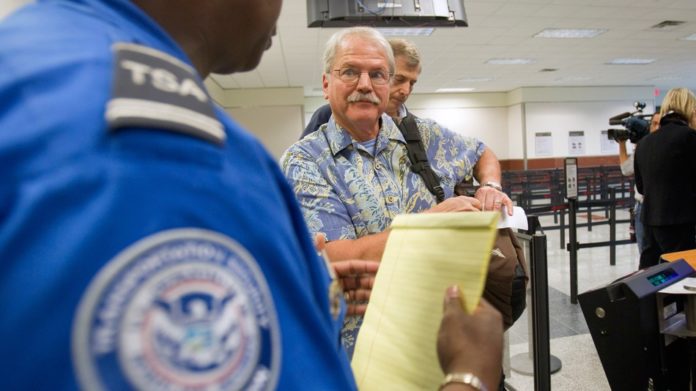U.S. Airports to Screen Travelers Arriving From Ebola-Stricken Countries

Airports in the United States will begin scanning body temperatures of travelers who have arrived from Ebola-stricken countries, according to the Associated Press. The screenings could begin as early as this weekend.
Previously, travelers entering the U.S. from areas hit by the recent Ebola outbreak have received a fact sheet about the disease. The White House has resisted calls from some members of Congress to instate a travel ban; more than 3,400 people in West Africa have died in the outbreak.
Travelers leaving Liberia, Guinea and Sierra Leone are screened as they exit, both by temperature scans and by answering a questionnaire about recent contact with sick individuals. However, Thomas Eric Duncan, the first person to fall ill with Ebola while in the U.S., had also gone through such a screening when he left Liberia.
On Tuesday, the UK announced it would not screen for Ebola at the airport — even if a passenger had just arrived from Liberia.
Temperature screenings at points of entry are not necessarily effective for identifying those sick with the disease. Ebola has a two- to 21-day incubation period, meaning a traveler could show no symptoms until weeks after contracting it. The World Health Organization does not recommend entry screening.
The Centers for Disease Control and Prevention (CDC) recommends against all non-essential travel to Guinea, Sierra Leone and Liberia.
US Airports will begin screening body temperatures of passengers entering the US from #Ebola zone countries, source tells @elizcohencnn
— John Newsome (@JohnNCNN) October 8, 2014
Earlier this week, Anthony Fauci, director of the National Institute of Allergy and Infectious Diseases, said “all options are being looked at” for screening as people enter the U.S. While the procedures for screening passengers leaving Ebola-affected countries are obvious, Fauci said the U.S. is still trying to figure out “what kind of screening you do on the entry end. That’s something that’s on the table now.”
There are no direct flights to the U.S. from Guinea, Sierra Leone or Liberia, so travelers who have been in those countries have gone through other hub airports. U.S. airports would determine who to screen based on flight itineraries.
Duncan is currently in a hospital in Dallas. He had gone to Texas Health Presbyterian Hospital Dallas when he first began exhibiting symptoms, but was sent home with antibiotics on Sept. 25. Three days later, on Sept. 28, he returned to the hospital where he was put in isolation. Duncan was diagnosed with Ebola on Sept. 30.
Have something to add to this story? Share it in the comments.
